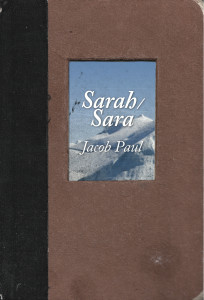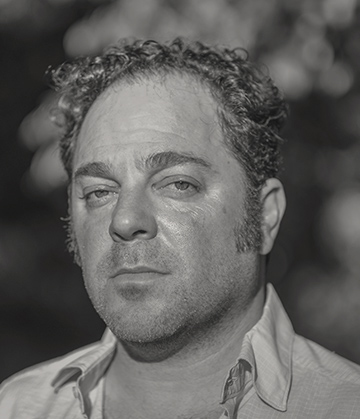Sarah/Sara
[tabs]
[tab title=”Early Praise” start=open]
“This solo kayak adventure along the coast of Alaska becomes the perfect cauldron for this ardent, introspective young woman with two names. Everywhere there is danger and grace. In the trials of her past, the rigors of her faith; and in the icy world as it unfolds before her, there are promises of redemption. Jacob Paul offers us in this powerful novel Sarah’s many layered season of discovery.”
~ Ron Carlson author of Five Skies and The Signal
“In this elegantly rendered, soul-testing tale, Jacob Paul explores the limits of faith at the edge of the world. The beauty and passion of Sarah/Sara arises from the hope this shattered woman finds in the most desperate circumstances, her remarkable belief that every life is sacred and every breath eternal. Stripped of all comfort and consolation, Sarah Frankel embraces the miracle of her own existence.”
~ Melanie Rae Thon author of Sweet Hearts and First, Body
“Showing how the best fiction mirrors real life, Jacob Paul’s Sarah/Sara is an unflinchingly honest portrait of how every adventurer’s kit—even in the faroff and dodgy Arctic Ocean—is freighted with spiritual turmoil from home.”
~Jon Waterman explorer and author of Arctic Crossing and Where Mountains Are Nameless; Passion and Politics in the Arctic National Wildlife Refuge.
[/tab]
[tab title=”Q&A”]
Q&A With Jacob Paul about Sarah/Sara:
What was the genesis of the story?
Several different things came together over a period of time. I was working on a different novel, a failed novel really, and I’d promised myself I wouldn’t work on anything new until I finished that. So I had a year in which to think about the new project before putting pen to paper. This was shortly after 9/11 and also during the period in which I first really got into outdoor adventure. I was climbing at a gym several nights a week and outdoors every weekend. I was also going on a several mountaineering trips each year. It occurred to me that I wanted to somehow compare the dangers of being alone in the wilderness with those of the city, but I didn’t have a good vehicle by which to do so. A little later, I had a conversation with Abby Frucht about the use of the future tense in a narrative. I realized that might be a way inhabit both spaces at the same time. Later still, I read Jon Waterman’s account of kayaking the Inside Passage in National Geographic Adventure. I immediately knew that I’d found my wilderness. I asked myself who was taking that trip – I knew it wasn’t me, or even a character like me. MORE
[/tab]
[/tabs]


 [/span8][/columns]
[/span8][/columns]




